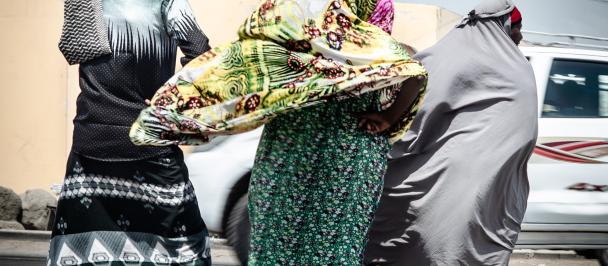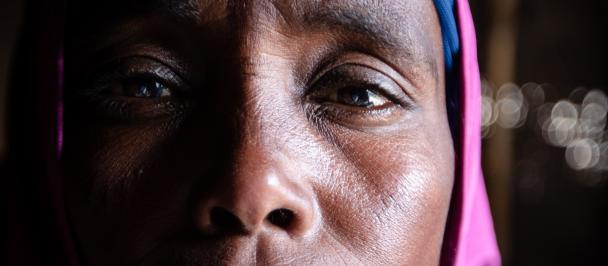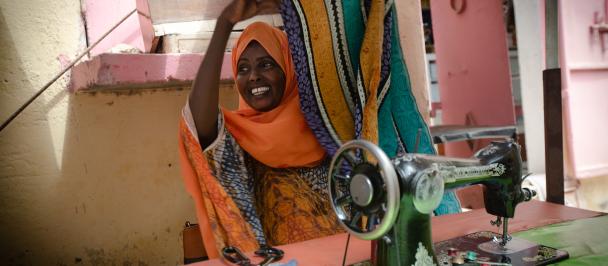Rising Djibouti: A program to curb the economic effects of the covid pandemic 19
Posted on December 29, 2020
To improve economic recovery and mitigate the effects of the health crisis of covid 19 which has greatly impacted the Djiboutian economy, a program entitled "Rising Djibouti" initiated by UNDP in partnership with the Ministry of Economy and Finance has been established to mitigate the economic effects of this health disaster. As part of this program, a new project funded by USAID was launched last Thursday in the town of Ali Sabieh in the presence of key partners and beneficiaries. The Minister of Economy and Finance, responsible for Industry, Mr. Ilyas Moussa Dawaleh, the Minister of the Interior Mr. Moumin Sheikh, Secretary of State for Decentralization Mr. Hamadou Houmed Aramis, the UNDP Resident Representative in Djibouti, Ms. Fatima Elsheikh the coordinator of the United Nations system in Djibouti Ms. Barbara Manzil'ambassadeur des Etats Unis à Djibouti M. Larry André, the Ambassador of the European Union in Djibouti Mr. Aidan O'Hara, the Prefect of Ali Sabieh M.Moussa Ali Miganeh, the President of the Regional Council Mr. Omar Ahmed wais and parliamentarians of the region took part in this ceremony to launch the project. Rising Djibouti targets a wide range of populations affected by this crisis, including entrepreneurs with local micro, small and medium enterprises, youth and CSOs (civil society organizations), in order to mitigate the socio-economic impacts of COVID-19 and recover quickly from the socio-economic crisis.
This new USAID-funded project supports existing and new livelihood and employment opportunities in Djibouti, primarily targeting livelihood options based on agriculture and fisheries.
It will increase livelihood opportunities through value chain assessments, market analysis and market intelligence to identify production, processing and processing industry opportunities at the local and regional level.
It aims to improve links with the market for domestic products and services through digital applications and partnership with the private sector. It will contribute to the improvement of the livelihoods and socio-economic recovery of more than 5,000 beneficiaries and strengthen the social inclusion of the most disadvantaged and unemployed youth
In a speech given on this occasion, the Minister of Economy and Finance Mr. Ilyas Moussa Dawaleh recalled that the Ministry of Finance has created the center dedicated to leadership and entrepreneurial development to support young people and businesses which now have a privileged interlocutor . "The innovation of this project lies in the fact that we will try to deploy technologies in production that can generate high financial income and sustainability of SMEs to improve the social impact. To all civil society partners and youth in Ali Sabieh and the 5 regions, I invite you to share your wishes and exchange ideas with the project teams of CLE and UNDP to help them set up support for the development of existing and new enterprises and determine how we can produce local products that can meet the requirements of the market, local but also regional and why not global. "he said.
He invited the youth and women of the Ali Sabieh region and the 5 regions to seize this opportunity to launch the take-off of our regions on the economic level. "Our support institutions and partners are all mobilized to listen to you, to accompany you as catalysts of this initiative.
As for the Secretary of State for Decentralization, he welcomed the government's solidarity in providing concerted and inclusive responses to the harmful consequences of the pandemic.
For her part, the UNDP Resident Representative in Djibouti Ms. Fatima Elsheikh said: "It is at times like these that we must all come together to help communities to cope with the new standards of the pandemic. The partnership we are celebrating today is based on unlocking the capacity of the local community to quickly identify local problems, opportunities and provide local solutions. These solutions will take the form of small and medium-sized enterprises, and that's exactly what we need today to ensure sustainability and accelerated recovery. »
She emphasized that the COVID-19 virus has taught us a hard lesson about our relationship with our environment, the pandemic is the last crisis facing the world, but unless humans loosen their grip on nature, it won't be the last. So, she said, the partners in this project aim to ensure that we work to accelerate a green and inclusive recovery. That is why before the launch of this project there was an awareness campaign on the importance of the green economy carried by young volunteers members of civil society "Djibouti Climate Network".
In a speech delivered on this occasion, the U.S. Ambassador to Djibouti Mr. Larry André recalled that unfortunately, beyond the health consequences, this pandemic has produced an unprecedented socio-economic crisis in the country.
"The launch of this project comes at a time when the economy of our large neighbor is likely to slow down due to internal conflict, in addition to the COVID crisis. "19 He said.
"The economy of Djibouti is closely linked to that of Ethiopia, so we have reason to be concerned about the negative consequences of this conflict on the entire region, and in particular on the Djiboutian economy. This could exacerbate the crisis already created by the COVID 19 pandemic. As a partner with the people of Djibouti and its government, the United States would like to contribute to your efforts to revive Djibouti's economy, mitigate the impact of this conflict on the country's economy, and accelerate Djibouti's development through dynamic partners. This is the meaning of our contribution to the government's National Solidarity Pact. ", he said.
It should be noted that this new project aims to convey the message through on-the-ground evidence of best practices in sustainability and the strong interconnection between nature, ecosystem and social prosperity through economic development. The project will therefore promote sustainable approaches to ensure that MSMEs, small-scale farmers and fishers follow green options while promoting productivity and economic empowerment.

 Locations
Locations

